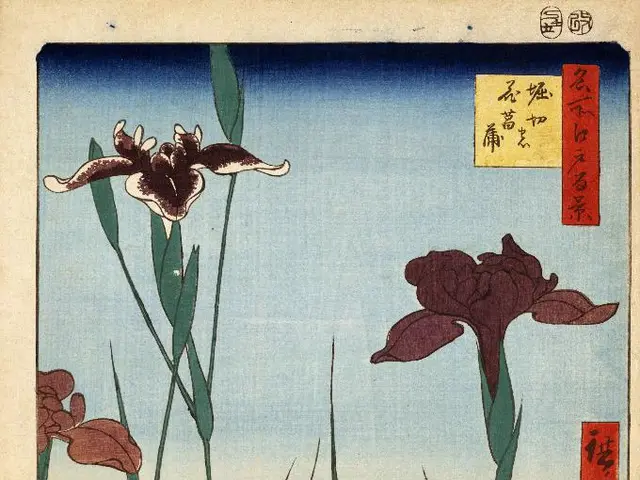Considering Plant Gifts: Essential Do's and Don'ts to Remember
Live plants are frequently touted as versatile presents for any occasion and any person. Supermarkets and large retailers are filled with live plants wrapped in foil and ribbons, perfect for holiday gift-giving. Online plant sellers also promote plants as presents. Before selecting a plant as a gift, consider the following dos and don'ts to ensure the plant is well-received by your recipient.
Dr. Mary Steffel, an associate professor of marketing at Northeastern University, specializes in consumer judgment and decision-making. Dr. Morgan Ward, an assistant professor of marketing at Emory University, focuses on consumer behavior.
1. Do: Ensure They Want a Plant
Giving a plant as a gift can be a thoughtful and long-lasting reminder of your affection for the recipient. Mary Steffel, the associate professor of marketing, explains, "Every time you pass by that plant, it reminds you of the person who gave it to you, and there's value in having those cues around you all the time that your loved ones are thinking of you and care about you."
However, a plant is also a responsibility, and if the recipient cannot or does not want to care for it, they may feel guilty when the plant dies. Morgan Ward, an assistant professor of marketing, advises, "The recipient might feel guilty when the plant dies because they feel like they've let you down or spoiled the gift you bought." Using a plant as a gift should bring joy, not guilt.
To determine if the recipient wants a plant, consider if they already have plants they enjoy caring for. If they have an extensive collection of indoor plants, a new plant as a gift is a safe bet. Another way to determine if they would appreciate a plant is to simply ask.
2. Do: Ask What They'd Like
It's perfectly fine to ask a person what they want for a gift, according to Mary Steffel. Givers tend to want to surprise recipients, but Steffel notes, "We have research showing that we're overconfident in our ability to gauge other's preferences when it comes to gift giving. We're not as good at guessing what other people want as we think."
People tend to be more appreciative of a gift they asked for, Steffel says. People are hesitant to ask for a gift because they feel they should already know what the recipient wants, but "recipients appreciate you taking the time to ask them what it is that they really want."
3. Do: Consider Their Ability to Care for a Plant
Choose a plant that matches the recipient's ability and desire to care for it. "A plant is a request for a level of effort," Steffel says. "You need to be sure that person wants that level of effort before you give them a plant."
Ask them what kind of plant parent they are, and choose a plant accordingly. A plant novice may appreciate a low-maintenance plant like a pothos or snake plant, while a plant enthusiast may enjoy a more challenging plant like a fiddle-leaf fig or a Madagascar palm.
If the recipient cannot keep plants alive, consider a fun alternative like a Lego orchid. It's an adorable, plastic plant they cannot kill, and it's a humorous nod to their past experiences with live plants.
4. Do: Consider Giving Cut Flowers
Plants are often seen as a superior gift to a bouquet of cut flowers because they live longer than a few days. "One of the reasons people buy gifts is to symbolize the importance of their relationship with the recipient, and a plant's lifespan is a long-term reminder of the bond between them," Ward says. However, some people may not want the responsibility of caring for a plant for years or may not have the space for a plant in their home. In this case, flowers may be a better gift.
While the flowers will eventually wilt and need to be composted, they can bring joy to the recipient while they last. "There's research showing that people tend to prefer experiences more than things when it comes to gifts," Steffel says. A beautiful bouquet of flowers falls under the category of experiences versus things.
If you want to give a plant-related gift, other experiential gifts to consider could be a membership to a local public garden or tickets to a nearby flower show.
5. Don't: Assume Expensive is Better
Gift givers often believe that the more expensive the gift, the more appreciative the recipient will be. Ward notes, "Research shows that givers tend to give less practical, more luxurious gifts than recipients want."
People may choose more luxurious gifts to show their investment in the relationship, believing that the time, thought, and money they put into the gift will be appreciated. However, this is not always the case. People often appreciate practical and thoughtful gifts more than extravagant ones.
Ward suggests a better strategy is to select a present that demonstrates you've taken interest in their pastimes and preferences, something that genuinely reflects their personality. Avoid gifting them an expensive, exotic variegated fiddle-leaf fig or rare pothos if a simple, low-maintenance, and budget-friendly spider plant can bring them delight.
Poinsettias and waxed amaryllis bulbs belong in the category of being an event instead of an item as well. Although they're both plants, keeping them post-holidays becomes a challenge due to their difficulty in blooming again. It's perfectly fine to get rid of them, making them a suitable and low-obligation host present for an individual who isn't enthusiastic about tending to plants.
Was this helpful? Thanks for your feedback! Share your reasoning with us!
- Gardening enthusiasts may find joy in a subscription to Better Homes and Gardens (BHG) magazine, filled with houseplant care tips and inspiration for their growing collection.
- During holiday entertaining, consider incorporating houseplants into your decor to create a warm and inviting atmosphere. Some festive options include Christmas cacti or potted poinsettias.
- When choosing a houseplant as a gift, be mindful of the recipient's gardening capabilities. A low-maintenance snake plant might be more suitable for beginners, while experienced gardeners might appreciate a challenging but rewarding succulent arrangement.








